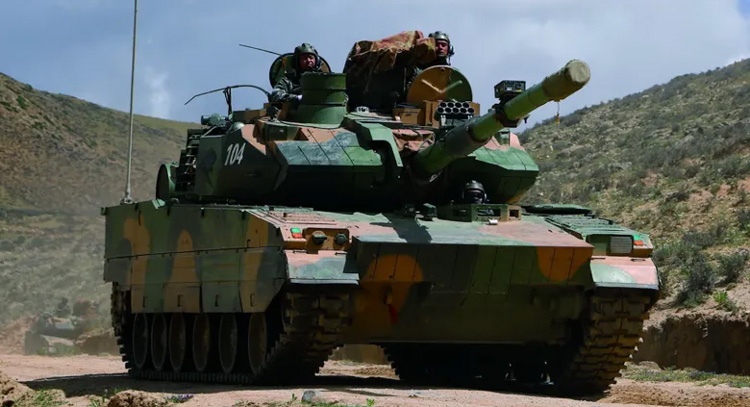India’s new light tank to pack a punch in mountain warfare
In a shining moment for the local defence manufacturing sector, India on Saturday unveiled a light tank designed for rapid deployment and high mobility in the mountains and it is expected to be ready for induction into service in 2027, strengthening the army’s posture against the Chinese forces along the contested Line of Actual Control (LAC), officials aware of the matter said.
The 25-tonne tank has been jointly developed by Larsen & Toubro and the Defence Research Development Organisation (DRDO) under Project Zorawar in around two years to meet the Indian Army’s requirement for 354 light tanks. It will now head into a set of rigourous trials.
The tank was developed from scratch within the shortest possible time, said one of the officials cited above.
“It will be capable of operating in challenging conditions along LAC with minimal logistics support. The tank will demonstrate its capabilities in summer and winter trials that will be conducted in deserts and mountains during the next two years before it goes into production,” he said.
DRDO chief Samir V Kamat on Saturday reviewed the first prototype of the tank at L&T’s Hazira facility in Gujarat where it performed some basic manoeuvres.
The Chinese People’s Liberation Army has inducted and fielded several modern tanks, including light tanks with a high power-to-weight ratio, across LAC. The military standoff between India and China in eastern Ladakh is now in its fifth year, with no indication of a resolution to the lingering problems even as India is hoping that ongoing negotiations with the neighbour will help restore the status quo ante of April 2020.
The Indian Army has deployed scores of heavier Russian-origin T-72 and T-90 tanks in the Ladakh theatre, but they have their own limitations as they were designed for operations in plains and deserts. The need for light tanks with adequate firepower, protection, surveillance and communication capabilities was felt after the border row began, the officials said. The new capability will cost around ₹17,500 crore.
“The tank can be transported by air and is capable of amphibious operations. It can fire at high angles of elevation and perform the role of limited artillery,” said a second official, adding that the platform’s modular design can accommodate future upgrades.
The tank is expected to be packed with cutting-edge technologies including artificial intelligence, drone integration, active protection systems and superior situational awareness.
Not for nothing has the tank been named Zorawar. The legendary general, Zorawar Singh, led the Dogra forces a record six times, between 1834 and 1841, to victories in Ladakh and Tibet. In May 1841, he led a 5,000-strong Dogra force into Tibet and within weeks overran the Chinese forces and captured their Mantalai flag.
In December 2022, the defence acquisition council gave its acceptance of necessity (AoN) and greenlit defence projects worth ₹84,328 crore to sharpen the combat potential of the armed forces with new military hardware, including the light tanks. Under India’s defence procurement rules, AoN by the council is the first step towards buying military hardware.
In a request for information published in April 2021, the army said the light tank must have the versatility to execute operations in diverse terrain conditions and to tackle a raft of threats and equipment profile of the country’s adversaries.
In a follow up note, the army said the light tank is envisaged as a lethal and survivable platform and will have major mobility advantage in high-altitude frontiers.
“These tanks with superior mobility, all terrain agility, multi-layered protection, precision lethal firepower and real time situational awareness duly integrating niche technology will offer multiple options for rapid operational employment, enabling the army to execute operations across the entire continuum of conflict,” the note said.
The tank was unveiled a day after defence minister Rajnath Singh announced that India had recorded the highest ever growth in the value of local defence production in the financial year 2023-24 on the back of enabling policy measures, with the figure reaching almost ₹1.27 lakh crore. The figure is around 17% higher than what it was in the previous year.
Of the total value of defence production in 2023-24, 79.2% was contributed by defence public sector undertakings and other PSUs, and the remaining 20.8% by the private sector.

